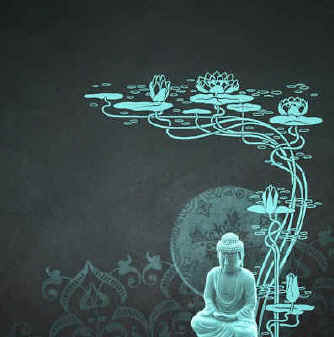A
Academia
Aesthetics
- numinous symbolism
Alcoholism
Alexander the Great
Alchemy
- alchemical symbolism
- Jungian psychology
Algorithms
- computationalism (objections to)
- non-algorithmic phenomena
- algorithmic compression
Anthropic Principle (participatory)
Art
- contemporary Buddhist Art from Thailand
- why beauty matters
Artificial intelligence
Attachment
- versus love
B
Bamiyan Buddhas
Beheading
Biology
Blasphemy
Bodhisattva vows
Bodu Bala Sena
Boston Bombers
Buddhist Blogs
Buddhist Defense League
Buddhist Philosophy is neglected in the West
- Jay Garfield
Burma/Myanmar - jihad against Buddhists
C
Chakras
Christianity
- Christian Missionaries
Christmas for Buddhists
Collective Karma
Computer model of mind
Computer programming
Conceptualism
Conventional and Ultimate Truths
Creationism
- crisis for Christianity, opportunity for Buddhism
Crystal offerings and crystal healing
D
Darwin, Charles
Dawkins,
Richard
- on
discontinuous thinking
Dead
White Males
Death - how to survive it
Decentering
Delusions
Depression
E
Emergent
Phenomena
- mind
Emptiness
- existence
and impermanence
- emptiness
of all phenomena
Empty Set and Mathematics
Entheogens
Essentialism
- in
physics, chemistry and biology
- Platonic
ideal forms
Evangelical Missionaries
Evolution
- not a threat to Buddhism
- death threats for teaching evolution
Existence
- inherent existence
F
Faith
- the F-word
Fatalism
Femininity
- bullying,
humiliating, abusing and mutilating girls and women
Four seals
of Dharma
France - growth of Buddhism
G
Garfield, Jay
Generic images
- contrasted
with ideal Platonic forms
- as
logical 'holes'
Greco-Buddhism
H
Halloween
Hard
Problem of Consciousness
Healing meditation
Hellenism
- dehellenization
and irrationalism
Humanism
I
Impermanence
- subtle impermanence in physics
Inherent
existence
- default view imposed by brain
Intentionality
Islam
M
Machine
Meaning
Meditation
Memes
- the Metameme
- Meme weeding by meditation
- Boston Bombers
Mereology
Metarationalism
Midsummer solstice celebrations
Migtsema
Modern Buddhism free eBook downloadable for Windows, Mac, Kindle, Sony
Reader, Nook and Android
Multiverse
Myanmar
- jihad against Buddhists
Mysterianism
N
Nadis
Nagarjuna
Nectars and Meats
Nerds and Geeks
New Scientist
New Year
Nine Hundred and Sixty Nine
Non-conceptual awareness
Numinous symbolism
P
Permanent
phenomena
Persecution
of Buddhists and other peaceful, vulnerable minorities
Pets
Plato
- ideal forms and essentialism
Post Traumatic Stress - Meditation
Process Philosophy
Psychedelic Buddhism
Punk
Buddhism
Q
Qualia
Quantum physics
- partless
particles
- quantum
Buddhism
- and
Mind
R
Radioactive decay
Rationalism
- Hellenism,
humanism and rationalism
- Kalama
Sutra
- Irrationalism
in religion
- The
rational foundations of Buddhism
Rebirth
Recession
Reductionism
- circularity
S
Samsaric
gods
Science and Buddhism
Scientism
Scruton, Roger
- on
algorithms and data structures
- on
beauty
Secularism
- Secular Buddhism
- secularized Buddhism adopted/adapted by big business
Selfish Gene
Sexual Tantra
Shamanism
Soul in Buddhism
Subtle Body
Summer Solstice
Sunyata
Svabhava
Swastika
SWOT analysis of Buddhism in the West
Symbiosis of Mind and Body
Symbolism
T
Tantra
-
tantra and sutra
- tantric
transformations
- Jungian
psychology
U
V
Wheel of Dharma
W
Whitehead
Wish-granting tree
